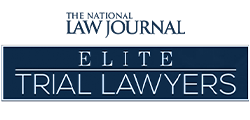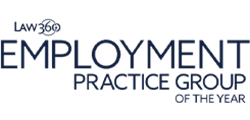Sanford Heisler Sharp Diversity, Equity, and Inclusion Committee Statement on Ramadan
March 2024
For many, sundown of March 10 marks the beginning of Ramadan. This monthlong religious event, which concludes on or around April 9, is observed by Muslims as a way to hone in on their spirituality, self-reflection, and community involvement. Sanford Heisler Sharp wishes a reflective month of Ramadan to all observers, and we encourage non-observers to learn about Ramadan and how they can be more inclusive and sensitive towards Muslim colleagues.
About Ramadan
Ramadan is the holiest month of the Hijri (Islamic) Calendar because it is believed to be the month that the Quran (Islamic holy book) was revealed to the Prophet Muhammad. Muslims observe Ramadan with one month of fasting, reading the Quran, giving special prayers, attending community events, volunteering, and donating (zakat). Ramadan for many is a detoxification process that encourages meaningful reflections, strengthens their faith, and develops personal growth – both individually and within their communities.
The exact dates for Ramadan vary because the Islamic Calendar is a lunar calendar, and lunar months are determined by moon phases. So traditionally, Ramadan fasting and prayers begin when observers can physically see the crescent moon (the start of a lunar month). Today, some Muslim communities decide their dates based on lunar forecasts and these dates differ from community to community, while many continue to follow the tradition of watching the moon.
To learn more about Ramadan, consider reading these articles:
- Why Ramadan is the most sacred month in Islamic culture (National Geographic)
- How Muslims mark Ramadan, and what makes it a holy month (PBS News Hour)
- Ramadan Reflections (Sapelo Square)
How to Be Sensitive and Respectful to Muslim Colleagues
One way to support Muslim colleagues during Ramadan is understanding the nature of fasting, one of the key pillars of Ramadan. Fasting, which includes abstaining from food and water from sunrise to sunset, is meant to be intense on observers’ physical energy and mental state, so that they can challenge themselves to be resilient and reflect on their daily lives, their spirituality, and personal priorities. Because of this, it is important for non-observers to respectfully acknowledge the toll that fasting may have on their colleagues without invalidating or disrespecting this spiritual practice.
Please refrain from asking pervasive questions about why a person would (not) fast or its impact on their workload. Fasting can be flexible and personal. People with sensitive medical conditions are encouraged to not participate in the fast. Moreover, there are many reasons why someone may fast one day and not another, such as when menstruating, traveling, taking medications that require food/water, or a host of other reasons. This is largely understood at communal iftar celebrations where Muslims break the fast at the Mosque, community centers, and family gatherings.
If you want to check-in with a Muslim colleague during Ramadan, be mindful of what questions you ask and how you phrase them. For example, we discourage asking Muslim colleagues specific questions like, “how is fasting impacting your workload?” or “I noticed you weren’t fasting today, is everything okay?” Instead, stick to general questions, like “how are you?” or “is there anything I can do to support you?” We highly recommend reading this Vice Article to learn more about How to Talk to Muslims During Ramadan.
Lastly, while we largely discuss fasting, please also understand that Ramadan is more than just fasting. As mentioned previously, Muslims also read the Quran, pray multiple times a day, attend community events, volunteer, and donate (zakat). DEI professional Yusuf Z. Zakir writes on this in a LinkedIn article.
Accommodations
For workplaces that hold group lunches, please give fasting employees the option to decide whether to attend group lunch. Those fasting may choose to sit out of group lunches entirely or stay for the conversation and skip lunch. Please be respectful by not pushing your colleagues to eat or drink something. Please also give fasting employees the option to order something that they can eat later in the evening for iftar—the meal held at sunset to break the fast.
All workplaces should have a clean private space so Ramadan observers can peacefully pray, read the Quran, reflect, and relax. If you are not aware of such rooms, please designate a privacy room where employees will not be interrupted during these important religious practices. Privacy rooms are important and common for all sorts of HR reasons.
To all employers, supervisors, and HR officers: please mark your calendars with Ramadan dates so that you can acknowledge Ramadan and instruct non-Muslim employees to be respectful, and more importantly provide Muslim employees with support and accommodations. Common Ramadan accommodations include allowing employees to …
- work shorter hours
- work flexible hours (allowing employees to work whenever as long as they hit their daily/weekly hours)
- work from home (unless a task absolutely demands their presence in-person)
- avoid afternoon meetings and deadlines
- take more breaks (especially at sunset, for “Iftar” the breaking of the fast)
- take religious holidays
For more examples of how to make the workplace inclusive of Ramadan observers, please consider reading these articles:
- How to Be Inclusive at Work During Ramadan (The Muse)
- Understanding Ramadan: How to Create a More Inclusive Workplace for Muslim Employees (LinkedIn Article by Hijab Hyder)
- 3 Simple Changes to Help Foster a More Inclusive Workplace This Ramadan (Inc.)
- Ramadan in the Workplace: Best Practices for Employers (ExtensisHR)
Happy Ramadan
Sanford Heisler Sharp wishes a happy Ramadan to all observers. We hope that you are all safe, well, and supported. We especially send our best wishes to incarcerated Muslims, Muslims who are struggling to find community this season, experiencing Islamophobia, and struggling with war. In solidarity with millions of displaced Muslim refugees, please donate to Muslim relief programs.
As mentioned briefly, Muslims engage in charitable donations (zakat) as one of their key pillars of Islam. Zakat sponsors mutual aid programs that address community needs like food security, shelters, helping refugees, and saving orphans. Help make a difference by adding to those donations:




